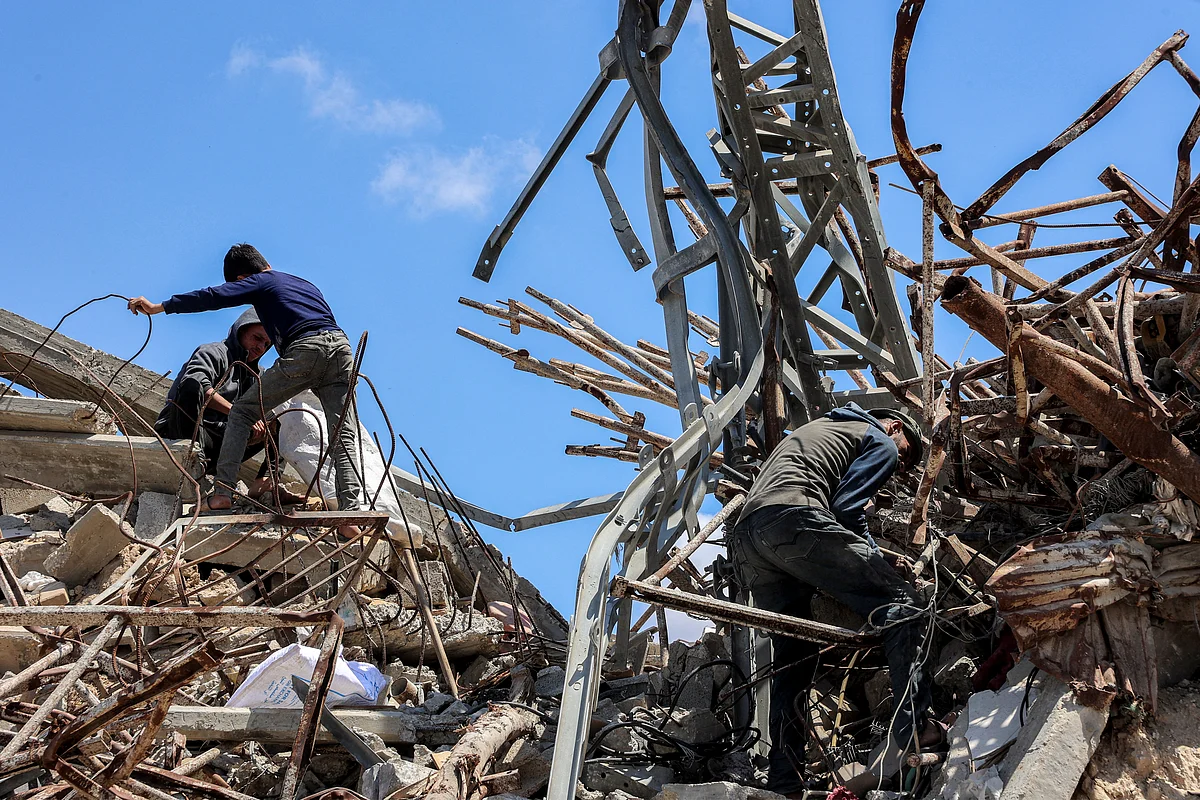
UAE: Gaza, Sudan Crises Expose Collapse In International System, Arab Leaders Warn
The wars in Sudan and Gaza have exposed the collapse of global mechanisms for conflict resolution, Arab leaders have warned.
The comments came during a high-level panel at the Hili Forum for Geostrategic Dialogue in Abu Dhabi.
Silence the gunsRecommended For YouAbdalla Hamdok, Sudan's former prime minister, described his country as the world's largest humanitarian disaster and accused the international community of abandoning solutions.
“Sudan today is the world's biggest humanitarian catastrophe. Yet there is no resolution. The crisis, at the heart of this geopolitical turmoil, comes at a time when the language of global politics has abandoned conflict resolution - it has become containment instead."
Stay up to date with the latest news. Follow KT on WhatsApp Channels.
Hamdok said institutions that once played a central role in resolving wars were no longer effective.“In the past, the United Nations had core mechanisms to address these crises. Today, they have disappeared completely, and each conflict is being handled in isolation, without linking them together.”
He warned that Sudan's tragedy should not be reduced to a personal power struggle.“For too long it has been portrayed as a power struggle between two generals. That ignores something essential: the crisis is far more complex, with political, economic and social dimensions.”
The priority, he stressed, was to silence the guns and secure humanitarian relief.“The central issue is to stop the war - to end the war. A ceasefire means silencing the guns, delivering humanitarian aid, and having international monitoring.”
Gaza as a turning pointHoshyar Zebari, Iraq's former foreign minister, said the Gaza war had become a defining moment for the region and for the credibility of international law.“The events of October 7 and what followed in Gaza were a turning point. They exposed double standards and revealed the fragility of the international system.”
Zebari warned that the wider Middle East had once again been pulled into conflict zones.“Unfortunately, the region has once again returned to the heart of conflict - Iraq, Syria, Yemen, Libya, Palestine."
He added that the unresolved Palestinian question remained at the heart of instability.“The Palestinian issue is the foundation of instability in the region. If it is not resolved fairly, there will be no stability.”
Leadership vacuumThe Iraqi politician also pointed to a decline in US leadership as a source of instability.“The absence of American leadership has created a vacuum. That vacuum has been filled by militias, regional powers and non-state actors. As a result, we are facing a new situation.” He argued that the international system had shifted from building peace to merely managing crises.“We used to speak of peace initiatives, accords and frameworks. Now we only talk of managing crises - and that is not sustainable."
State fragilityBisher Al Khasawneh, Member of the Jordanian Senate and former Prime Minister, underscored the centrality of the nation-state.“The nation-state is the only shield against fragmentation. When the state disappears, we fall into chaos and division.”
He said restoring legitimacy in governance was essential to preventing further collapse.“Rebuilding political legitimacy is a national duty. We cannot continue with sectarian quotas in governance. This is the reality in Iraq, Lebanon, Libya and Sudan."

Legal Disclaimer:
MENAFN provides the
information “as is” without warranty of any kind. We do not accept
any responsibility or liability for the accuracy, content, images,
videos, licenses, completeness, legality, or reliability of the information
contained in this article. If you have any complaints or copyright
issues related to this article, kindly contact the provider above.


















Comments
No comment